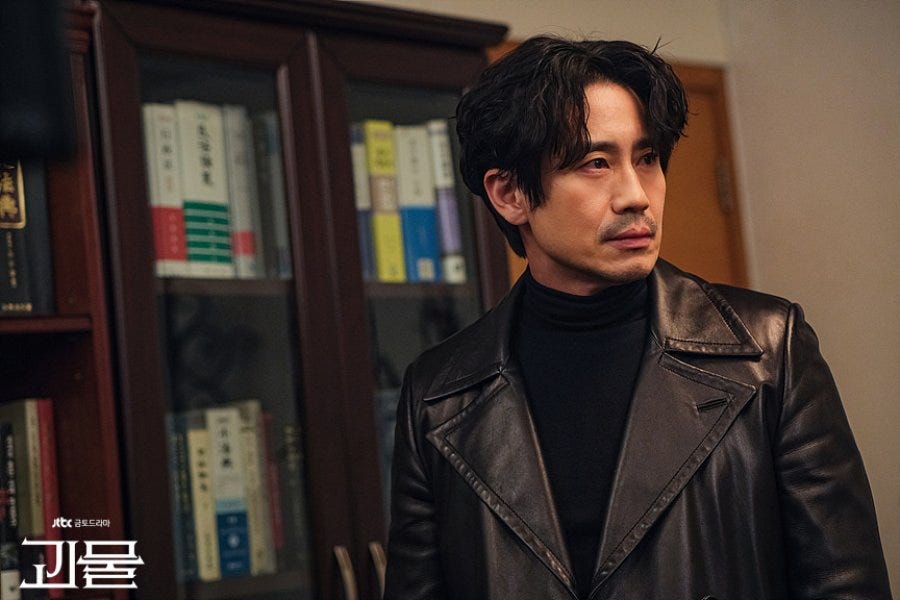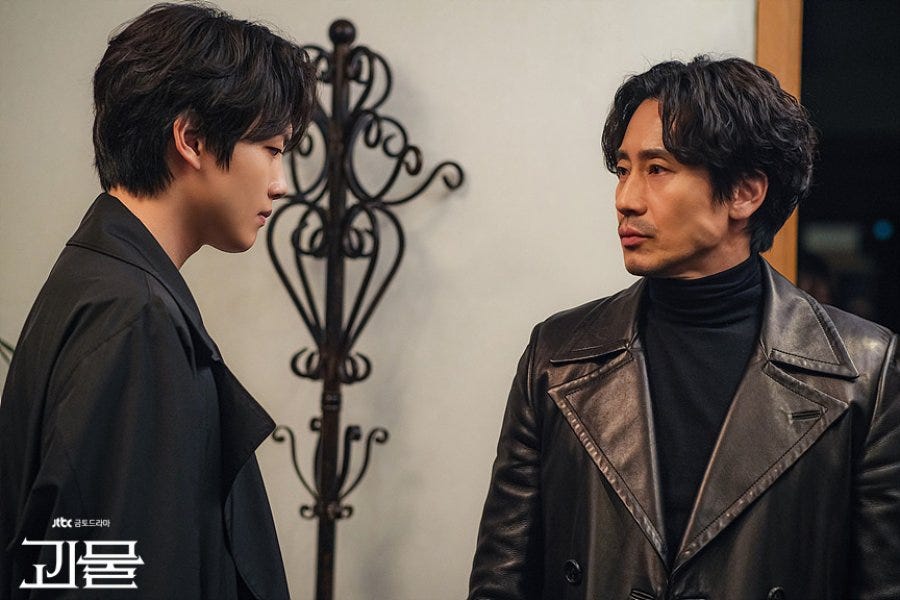Beyond Evil (2021) Review and Final Comments
I’m not one for awards shows and didn’t tune into this year’s Baeksang Awards last night but I’m a regular visitor to various platforms and observed that Beyond Evil was the big winner hogging the Best Drama, Best Screenplay and Best Actor awards. For someone who watched the drama religiously while it was airing, my bias leads me to gleefully declare that this recognition is well-deserved. There’s little doubt in my mind that this was one of the consistently best dramas from the last twelve months.
This is a post I have been wanting to write for some time. With all kinds of distractions in the form of new dramas as well as not wanting to repeat myself needlessly, I’ve put this on the backburner. The awards gave me the impetus I needed to say what I’ve wanted to since the show’s closure.
Those who follow this blog to any degree know that this was one that had me gabbing away here, here, here and elsewhere. Despite featuring cops and killers, this was not your garden variety whodunit in any classic, definitive sense. It has been called a psychological thriller and that does speak to how it plays out but what it is… is far more difficult to pin down. On the one hand, it is a wonderful, profound novel about the people living in a small regional city who are bound together by terrible tragedy and damning secrets. Not all are allies much less friends. Conflicts flare up. Personalities clash. But those on the side of right, flawed human beings that they are, are imbued with a compelling need to see justice done. What that looks like, how that’s achieved is, in my view, the heart of the drama. From the first moment Dong-sik is arrested and up to the last when the leads meet up again a year later these lofty ideals are furiously contested. In the end, the rule of law must prevail. Otherwise the right of might quickly devolves into the rule of might.
On the other hand, Beyond Evil is a complex and fascinating parable about the creeping insidiousness of evil and its toxic effect. The home grown serial killer is illustrative (and symbolic) of that contaminating influence (to use an environmental analogy) that slowly but surely destroys the inhabitants of a community. It is a cancer cluster that pervades the air of Mujin that has been spreading for decades and continues to kill. The numerous dead women are the result. I am reminded of something that is written in the book of James in the New Testament. “But each person is tempted when he is lured and enticed by his own desire. Then desire when it has conceived gives birth to sin, and sin when it is fully grown brings forth death.” (James 1:14-15)
The moral of the story is that when men and women commit sins and they bury it, the problem that they’ve created doesn’t go away or is easily forgotten. The result is an open wound that festers day and night until the cause is dealt with. There is another law at play. One that is not limited by human imperfection. A moral law that cannot be defied by the forces of human power and corruption. It is angry and it is restless. It finds its instruments in imperfect men and women who are driven to overcome insurmountable obstacles for the cause of truth.
Shin Ha-kyun’s performance as Dong-sik is that of a deeply tortured soul in a lifelong search for the truth about justice itself. Suspected, scorned and spurned he becomes a cop in the belief that justice must exist, only to find that seeking justice is a much more arduous, painful road than he might have thought. It’s the holy grail of his existence attempting to transcend the limitations of the law laid down by men to get the justice that has long eluded him. Shin Ha-kyun’s performance is riveting all throughout whether in anguish over the deaths of loved ones or as Ju-won’s verbal sparring partner. Slippery, snide and cynical — Shin Ha-kyun did it all with perfection.
His chemistry with Yeo Jin-goo was surprisingly good. The two bickered incessantly for much of the plot but when they finally bonded as they were always meant to, all the pieces fell together. There’s no doubting that Yeo Jin-goo is a talented lad. At his age and the body of work that he’s already achieved, it’s obvious he has a great career in front of him if he wants it. His city lad stumbles into Manyang as the fish out of water and gropes all the way to the ugly truth. He too wants justice but as he’s riddled with guilt and over confident about his ability to wrap things up quickly, this was always destined to be his learning curve — the hard-hitting event of a lifetime that will change his life forever. As he bumbles around with accusations he seems unlikeable at first but after hobnobbing with the locals, he loses his inhibitions and comes good.
In truth the entire cast was well-chosen giving engaging performances. Special mention must go to Choi Dae-hoon as the emotionally unstable Park Jung-jae lost in a fog of secrets, living in a dysfunctional relationship with mother, Do Hae-won an ambitious councilwoman. Someone to watch is Choi Sung-eun who plays Jae-yi a lass brimming with talent. I had no idea this was her first major outing early on but she strutted her stuff like a pro. For someone of her age and experience to project that kind of gravitas was amazing. Heo Sung-tae as Lee Chang-jin, however, was a fun complex villain whose work here certainly grabbed a lot of attention. I could go on and on but these were the highlights.
This is what makes Beyond Evil great and in a class all by itself. It is the characters that makes this superior to many of its competitors in the Baeksang. Every character is wonderfully sculptured and woven into the narrative. Every character even the so-called good guys are consistently flawed and multidimensional. One could even say that there are no good guys here — just angry and corrupt ones. They are grounded in the world they live in. They could be your neighbour, your local vendor and your district cops. They are just people trying to survive in a world full of suffering and tribulations. Sometimes they make it, sometimes they don’t.




